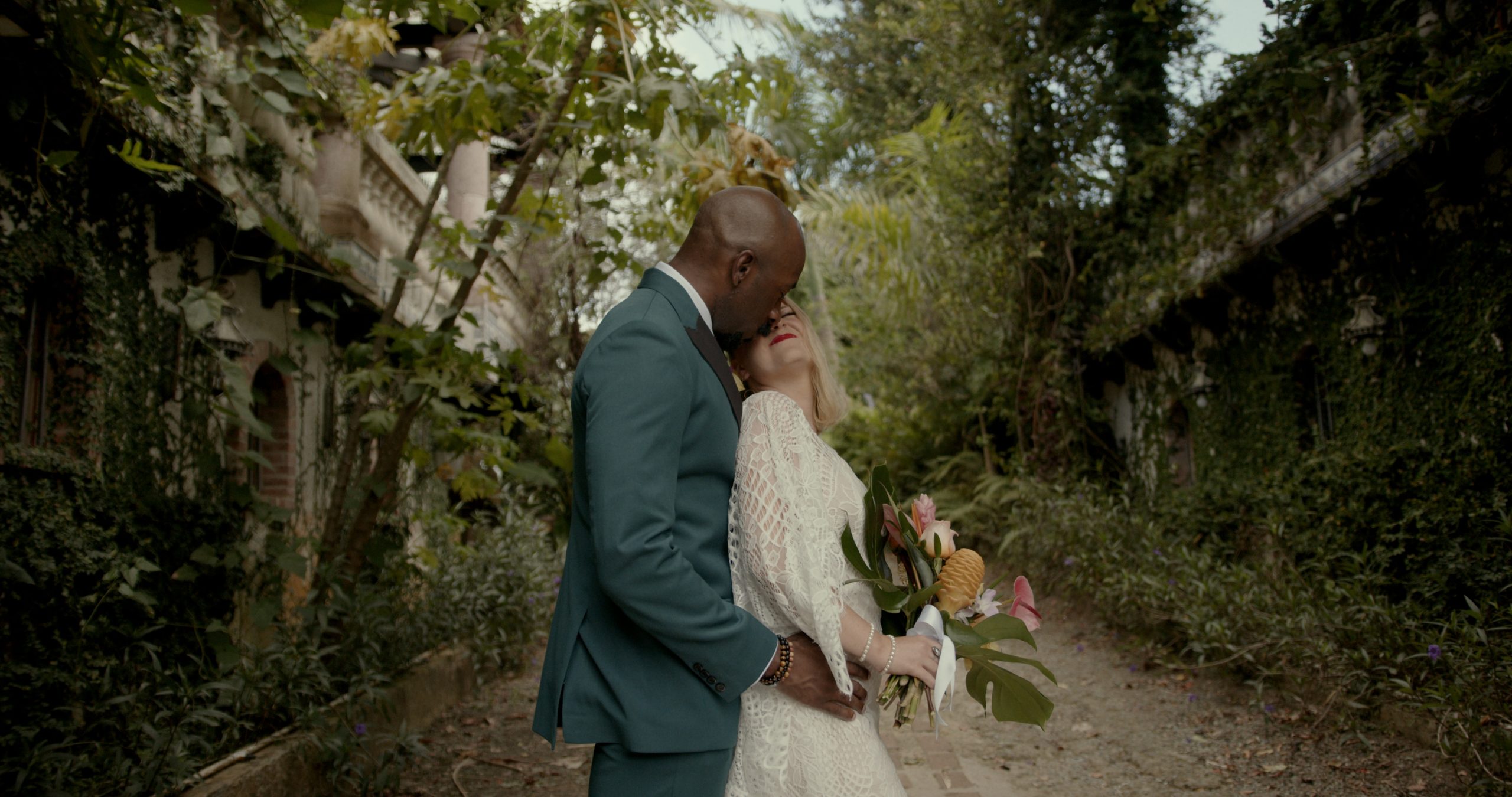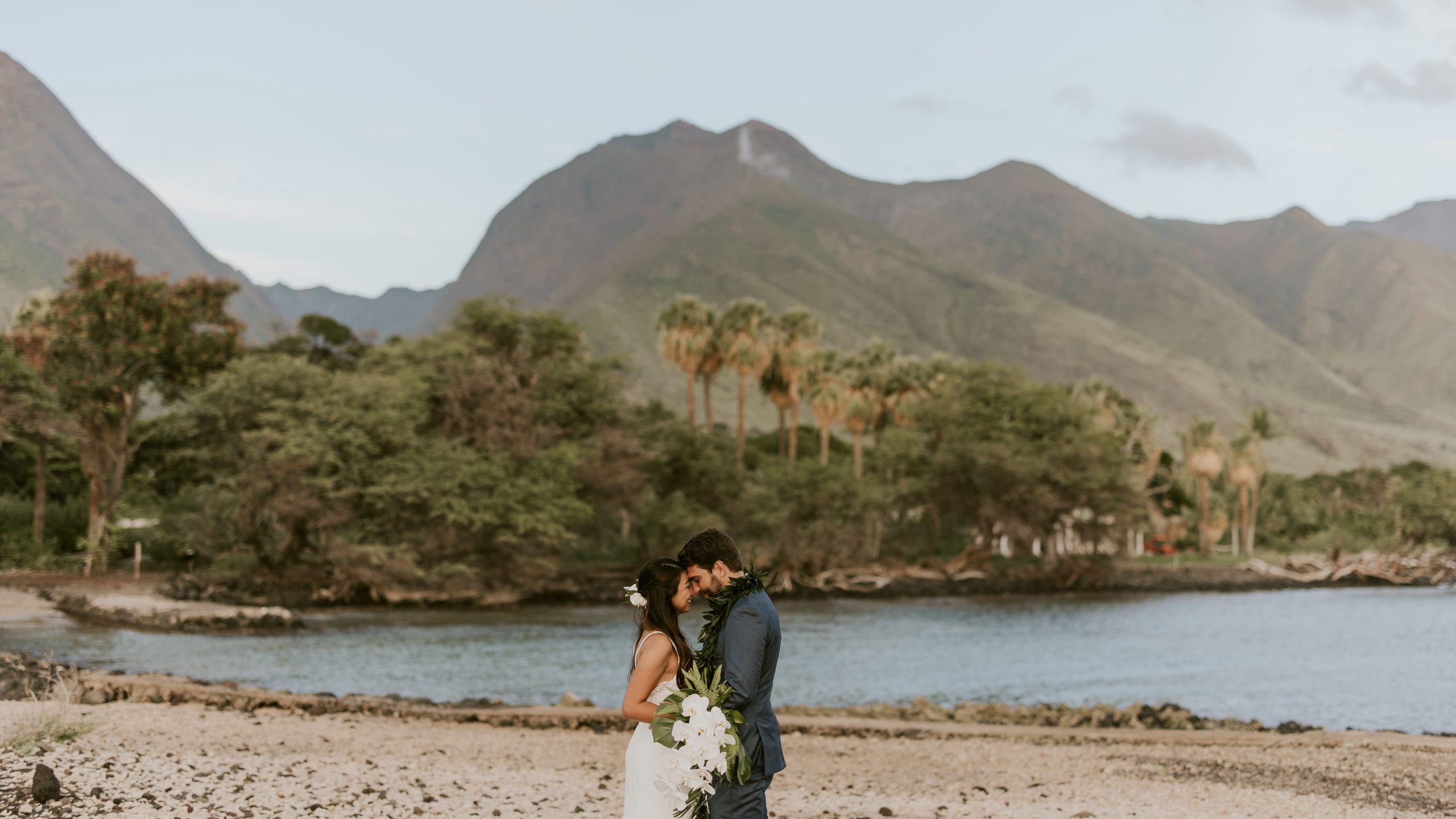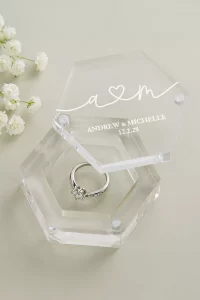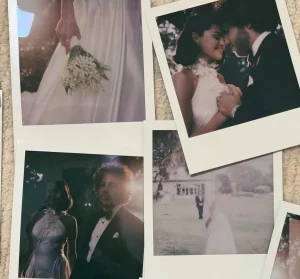If you’ve been invited to a wedding in the last five years, you’ve more than likely landed on a wedding website or two. These now-expected (but not required) websites serve as an informational hub for your wedding, filled with helpful tips and need-to-know details for your guests. Now that you’re engaged, we bet you’re wondering what to include on your wedding website. Fear not, we’ve got your complete guide right here.
And the best part? Pearl Planner now makes building your wedding website effortless. In just a few clicks, you can create a beautiful, personalized site that pulls in your colors, style, and details—so you can check this must-do off your list in minutes.

What is a Wedding Website?
Before we dive into the nitty gritty, let’s start with what a wedding website even is. A wedding website is your digital home base for all things related to your big day. Think of it as your personal wedding concierge—available 24/7 to answer your guests’ questions and share important updates (and save you from those never-ending texts). While your invites give a glimpse into your celebration, your website is where the details live: travel info, schedules, registries, dress codes, and even RSVP options.
They’re typically customizable, allowing you to reflect your style, share your love story, post those super cute engagement pics, and provide thoughtful guidance to your guests attending the celebration. Whether you’re planning a destination wedding or a hometown affair, a wedding website keeps everyone on the same (web) page. Tools like Pearl Planner make it even easier, pulling in your colors, vision, and details so you can create a site that feels personal, without the heavy lifting.
What Should Be on Your Wedding Website?
Above all else, your wedding website should at minimum include the information you’d put on your invitations, including your wedding date, time, location, and RSVP info. But it’s always nice to give your guests a little extra! To make it easy, we’ve broken it up into five main categories.
1. Couple Info
Introduce yourselves to your guests (as if they need it!) by sharing your names, love story, and proposal moment, plus a few of your fave engagement shots. You can also spotlight your wedding party with short bios so Aunt Barb knows who’s standing beside you.
2. Ceremony Info
Cover the essentials like your wedding date, time, and ceremony location. Be sure to note the dress code and any social media preferences—be it an unplugged ceremony or custom hashtag.
3. Reception Info
Let guests know exactly what to expect post-ceremony, including the reception venue address (if different than your ceremony), cocktail hour and dinner timeline, and whether the event is adults-only. Include RSVP details, meal options, and plus-one policies to avoid confusion.
4. Guest Info
Help your guests plan by sharing travel tips, hotel blocks you have reserved, and local recommendations for dining or sightseeing. If applicable, collect their meal selections and ask for song requests to personalize your party.
5. FAQs
Answer common questions up front—think more detailed dress code notes (with photo examples to really drive it home), registry links, travel logistics for destination weddings, and a contact person in case they need help on the day.

Common Mistakes to Avoid on Your Wedding Website
Even the best wedding websites won’t land if a few basics are overlooked. Some of the most common wedding website mistakes are forgetting to include the exact ceremony and reception start times, parking details, or RSVP deadlines. You should also avoid using too many fonts or clashing colors, which can make your site hard to read—especially on a cell phone. Double-check all your links (like hotel blocks or your registry) work before publishing and remember to update the site regularly as your plans evolve.
When to Publish (and Update) Your Wedding Website
Wondering when to hard-launch your wedding website? You should aim to have it live at least 6 to 8 months before your big day, but many couples publish theirs just before sending out their save-the-dates, sometimes 9 to 12 months ahead of time—especially if you’re hosting a destination wedding or have lots of out-of-town guests. This gives everyone plenty of time to book travel and accommodations. Update your site as new details are confirmed: RSVP deadline reminders, event timelines, weekend activities, or (though unlikely) changes to venues. Think of it as a living resource, not a one-and-done project.
How to Build a Wedding Website
Not sure how to build a wedding website? Start by choosing a free wedding website builder like Pearl Planner that offers beautiful templates and easy-to-use tools. From there, customize your layout, add your wedding date, venue info, and RSVP form, and personalize it with photos and your love story. Choose a custom URL (like yournameswedding.com) for easy sharing. Pro tip: Make sure your wedding website is mobile-friendly since most guests will access it on their phones.

Planning your wedding website might seem like just another item on your to-do list, but it’s one of the most helpful tools you can create for your big day. From sharing your love story to keeping guests informed and organized, a well-designed site makes the entire experience smoother for everyone involved. By following our guide on what to include on your wedding website, you’ll ensure your guests have everything they need—right at their fingertips.
Looking for more tips? Check out Pearl by David’s for all the latest trends, advice, and more.












